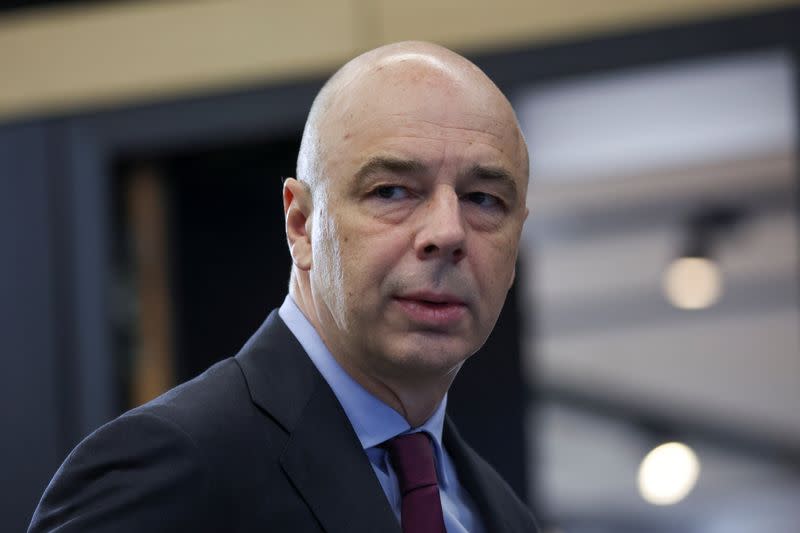Russian Finance Minister: Hitting budget deficit of 2% of GDP depends on oil and gas - agencies

(Reuters) - Russia's forecast of a 2023 budget deficit of no more than 2% of gross domestic product (GDP) remains in force but much depends on oil and gas revenues, Finance Minister Anton Siluanov was quoted as saying on Friday.
"So far, these benchmarks are unchanged, but to say that it will be exactly 2%, this means giving incorrect estimates. There can be deviations in one direction and the other. Let's see what will happen to oil and gas revenues," Interfax quoted him as saying.
Russia's energy revenues have been hit by Western sanctions including an oil price cap, although Siluanov said non-energy revenues were holding up well.
The minister was also cited as saying that Russia would begin exchanging sovereign Eurobonds for rouble-denominated OFZ treasury bonds by the end of the year. He said Eurobonds issued by both companies and the government would be replaced.
"These will, of course, be rouble bonds, but their characteristics are no different (from Eurobonds)," he said, adding that discussions were under way with market participants.
He did not say how the government would address the legal issues involved with changing bondholders' terms.
At the start of the Ukraine war, Russia had a total of 15 international bonds outstanding with a face value of around $40 billion, of which roughly $20 billion were held by investment funds and money managers outside Russia at the time.
Russia last year defaulted on its international bonds for the first time since the Bolshevik Revolution, after the U.S. Treasury effectively blocked it from making payments as part of sanctions to punish it for the invasion of Ukraine.
(Reporting by Reuters; Writing by Alexander Marrow and Mark Trevelyan; Editing by Hugh Lawson)

 Yahoo Finance
Yahoo Finance 